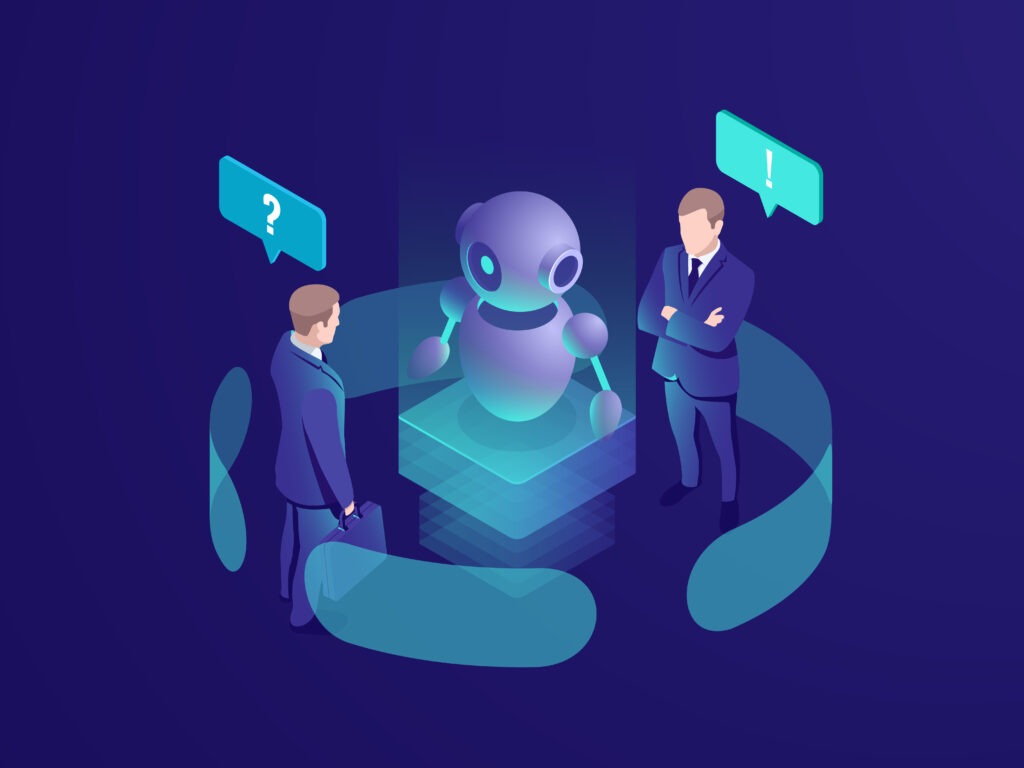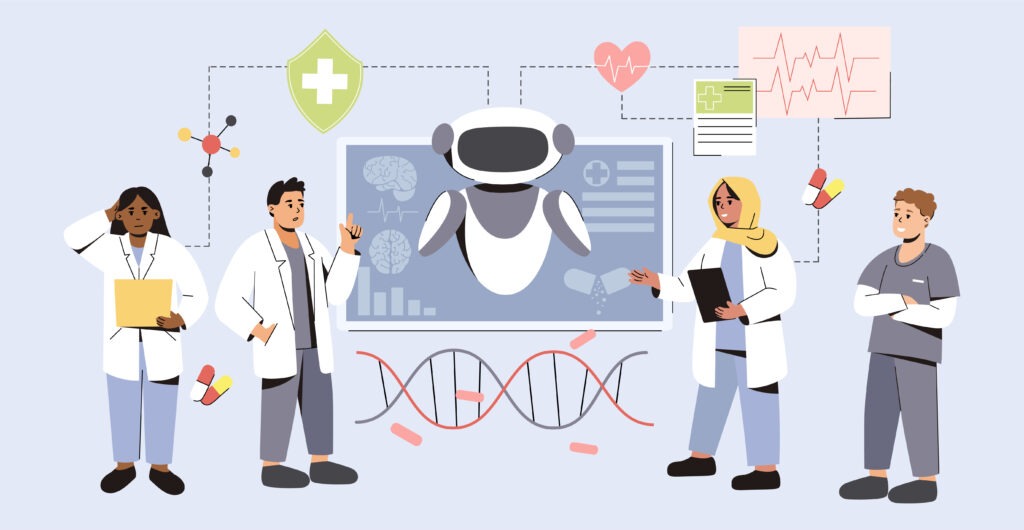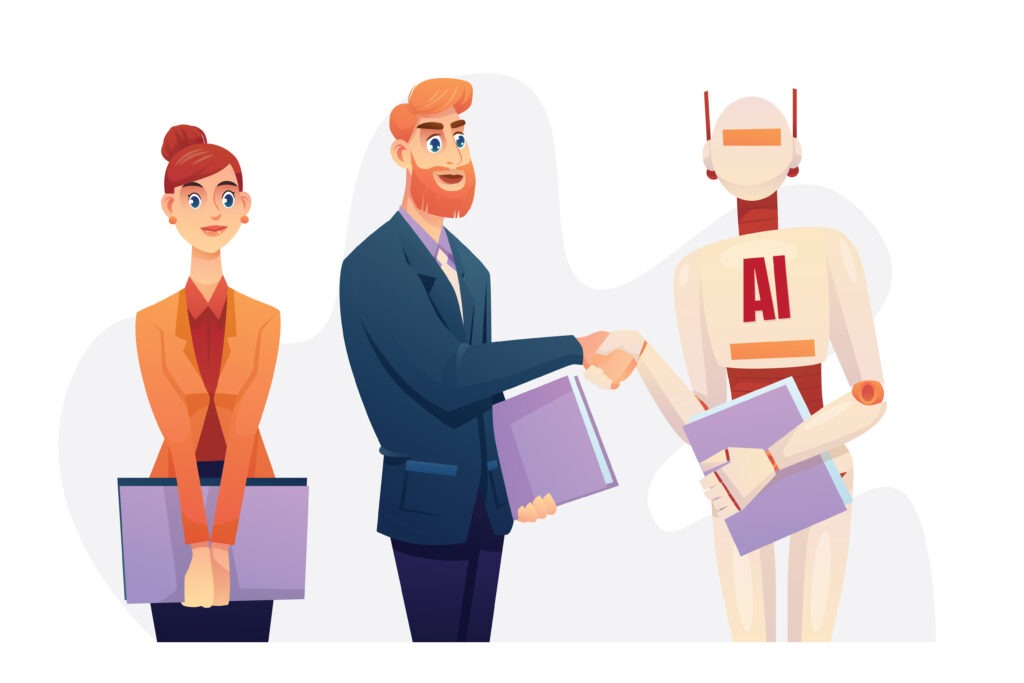
Introduction
Artificial Intelligence (AI) is revolutionizing the technological landscape, impacting various sectors and redefining the boundaries of innovation. As AI technologies evolve, they bring forth transformative trends that shape our future. This comprehensive exploration delves into the emerging trends in AI, highlighting their implications and potential to redefine industries.
The Growing Importance of AI
The pervasive integration of AI across different industries signifies a paradigm shift rather than a mere trend. AI’s influence extends from healthcare and finance to education and entertainment, offering new avenues for efficiency and innovation. The transformative impact of AI underscores the necessity for industries to understand and adapt to these emerging trends, as they hold the potential to reshape societal norms and economic frameworks.
Edge AI and Decentralized Computing
Edge AI represents a significant departure from traditional centralized computing. By processing data closer to its source, Edge AI minimizes latency and enhances data privacy, making it ideal for applications requiring real-time decision-making. This trend is particularly relevant in autonomous vehicles, where split-second decisions are critical, and in smart devices that operate independently of constant cloud connectivity. The shift towards decentralized computing is driven by the exponential increase in data generated by IoT devices, necessitating faster and more efficient processing.
AI in Healthcare

AI’s integration into healthcare is proving transformative, with applications ranging from improving diagnostic accuracy to personalizing treatment plans. Machine learning algorithms analyze patient data, helping doctors make more informed decisions. AI-powered imaging tools assist in detecting diseases early, potentially saving lives. Moreover, predictive analytics in healthcare can forecast disease outbreaks, enabling proactive measures. However, the deployment of AI in healthcare raises ethical concerns, especially regarding patient data privacy and the need for transparent and accountable algorithms.
Natural Language Processing (NLP)
Natural Language Processing (NLP) is at the forefront of making human-machine interactions more intuitive. Advances in NLP have led to the development of sophisticated conversational AI, such as chatbots and virtual assistants, capable of understanding and responding to complex human language. These technologies are becoming increasingly adept at handling nuanced queries and providing personalized responses, thereby enhancing user experience. As NLP continues to evolve, it promises to facilitate even more seamless communication between humans and machines.
AI and IoT Integration
The convergence of AI and the Internet of Things (IoT) is giving rise to intelligent ecosystems where interconnected devices work collaboratively. This integration enhances the capabilities of IoT devices, allowing them to manage tasks ranging from optimizing energy consumption in smart homes to improving industrial process efficiency. In smart cities, this synergy facilitates data-driven decision-making, enhancing urban living experiences and infrastructure management. The collaboration between AI and IoT is pivotal in advancing towards a more connected and intelligent world.
Autonomous Systems and Robotics
The development of autonomous systems, including self-driving cars and drones, is a testament to the capabilities of AI. These systems rely on AI for environmental perception, decision-making, and navigation, often performing tasks that require high precision and reliability. In manufacturing, robotics powered by AI are revolutionizing production lines, offering precision and efficiency. However, the rise of autonomous systems brings with it a host of ethical and regulatory challenges, particularly concerning safety standards and accountability in case of system failures.
AI in Cybersecurity

As digital threats become more sophisticated, the role of AI in cybersecurity has never been more critical. AI algorithms excel at detecting anomalies and potential threats in real-time, providing a proactive defense against cyber-attacks. By identifying patterns and predicting future risks, AI helps organizations bolster their security measures. Furthermore, the automation of response strategies minimizes damage and accelerates recovery times. The continued evolution of AI in cybersecurity promises to enhance protection mechanisms, safeguarding sensitive information and infrastructure.
AI Ethics and Governance
The rapid development of AI technologies has sparked a global conversation about ethics and governance. Ensuring that AI systems are transparent, fair, and accountable is a growing priority. Ethical AI involves creating frameworks that address issues such as algorithmic bias, data privacy, and the societal impact of automation. Governments and organizations are actively working on regulations to ensure the responsible deployment of AI technologies. As AI becomes more integrated into daily life, these ethical considerations will play a crucial role in shaping its future development and adoption.
Explainable AI (XAI)

Explainable AI (XAI) focuses on making the inner workings of AI systems transparent and understandable to humans. As AI models become increasingly complex, the need for clarity in decision-making processes grows, especially in critical fields like healthcare and finance. XAI helps build trust in AI by providing clear explanations for decisions, enabling users to understand, challenge, and validate the outcomes. This transparency is essential not only for regulatory compliance but also for ensuring ethical AI deployment.
AI in Finance
The finance industry has been quick to adopt AI, leveraging its capabilities for various applications such as algorithmic trading, fraud detection, and risk management. AI algorithms can analyze vast amounts of financial data, identifying trends and executing trades with precision and speed. In fraud detection, AI helps in recognizing unusual patterns, providing an additional layer of security. Moreover, AI-driven customer service tools, such as chatbots, enhance the customer experience by delivering quick and accurate responses. The integration of AI in finance is making the industry more efficient, secure, and customer-centric.
AI in Creative Industries
AI’s influence extends into the creative realm, where it assists in generating art, music, and literature. AI algorithms can create unique artworks, compose music, and even generate written content, pushing the boundaries of what is traditionally considered human creativity. While this innovation offers new forms of artistic expression, it also raises questions about originality and the nature of creativity. As AI continues to evolve in the creative industries, it will be crucial to address these ethical and philosophical questions, ensuring that AI-generated works are properly attributed and valued.
AI in Education

In the field of education, AI is transforming traditional teaching methods by offering personalized learning experiences. AI-driven platforms can adapt to individual student needs, providing customized content and real-time feedback. AI tutors offer personalized assistance, helping students grasp complex subjects at their own pace. Furthermore, AI-powered content creation tools can generate educational materials tailored to specific learning goals. The future of AI in education promises to enhance learning outcomes, making education more accessible and inclusive for all students.
AI and Environmental Sustainability
AI is a powerful tool in the quest for environmental sustainability. From optimizing energy usage to predicting the impacts of climate change, AI technologies are instrumental in addressing environmental challenges. For instance, AI can analyze large datasets to forecast weather patterns and improve disaster response strategies. In supply chain management, AI helps reduce waste and optimize resource use. As the world faces pressing environmental issues, AI offers innovative solutions for promoting sustainability and mitigating environmental impacts.
AI in Marketing and Consumer Behavior

Marketers are increasingly leveraging AI to gain deeper insights into consumer behavior and tailor their strategies accordingly. AI-powered analytics can segment customers, predict buying trends, and personalize marketing campaigns. Sentiment analysis, another key application, helps companies understand consumer opinions and adjust their messaging in real-time. The use of AI in marketing enhances customer engagement and the effectiveness of marketing efforts, driving business growth and improving customer satisfaction.
AI for Social Good
Beyond commercial applications, AI has significant potential for social good. AI-powered systems can analyze complex datasets to identify public health trends, inform policy decisions, and improve healthcare delivery. In disaster response, AI can predict and manage crises, such as natural disasters or pandemics, facilitating efficient resource allocation and response strategies. Additionally, AI is being used to tackle global challenges like poverty, education, and healthcare access, offering innovative solutions to improve quality of life and societal well-being.
Future of AI in Employment
The impact of AI on the job market is a topic of considerable debate and interest. While AI and automation are expected to displace certain jobs, they also create new opportunities, particularly in fields requiring advanced technological skills. The key to navigating this transition lies in reskilling and upskilling the workforce to meet the demands of a technology-driven economy. As AI continues to evolve, both individuals and organizations must adapt to the changing job landscape, focusing on lifelong learning and skill development.
AI and Data Privacy

As AI systems become more integrated into daily life, data privacy concerns intensify. The collection and processing of personal data by AI raise significant questions about consent, security, and potential misuse. Regulations like the General Data Protection Regulation (GDPR) set standards for data protection, but challenges remain in implementation and enforcement. Ensuring robust data privacy measures in AI applications is crucial for maintaining public trust and protecting individual rights. As AI technologies advance, ongoing efforts to safeguard data privacy will be essential.
AI Hardware Innovations
Advancements in AI hardware, including specialized AI chips and quantum computing, are propelling the field forward. These innovations enable faster data processing, more efficient energy consumption, and the ability to handle increasingly complex computations. AI hardware innovations are crucial for the continued development and scalability of AI applications, from real-time analytics to advanced machine learning models. As these technologies evolve, they will unlock new possibilities and drive further advancements in AI capabilities.
AI and Augmented Reality (AR)
The fusion of AI and Augmented Reality (AR) is creating more immersive and interactive experiences. AI enhances AR by processing and interpreting visual data, enabling dynamic overlays that respond to user actions. This technology is being utilized in various sectors, including gaming, education, and retail, to create engaging and personalized experiences. As AI and AR technologies continue to advance, they offer new ways to interact with the digital and physical worlds, transforming how we perceive and engage with our surroundings.
Collaboration between AI and Human Experts

The collaboration between AI and human experts is leading to the development of hybrid intelligence systems that leverage the strengths of both. In fields such as medicine, law, and finance, these systems provide decision support, combining the data processing capabilities of AI with the strategic thinking of human professionals. This partnership enhances productivity and allows human experts to focus on higher-level tasks, while AI handles routine analyses. The future of professional roles will increasingly involve such collaborations, emphasizing the need for a deep understanding of AI technologies and their applications.
Conclusion
The landscape of AI is continuously evolving, with emerging trends offering profound implications for industries and society. From edge computing and healthcare innovations to ethical considerations and the integration of AI in creative fields, these trends highlight the transformative potential of AI. As we embrace these advancements, it is crucial to ensure their responsible and ethical deployment, fostering an inclusive and sustainable future. Staying informed and adaptable will be key for businesses, policymakers, and individuals looking to leverage AI for a better tomorrow.
FAQs
What is Edge AI and why is it important?
Edge AI involves processing data on devices at the “edge” of the network rather than relying solely on centralized data centers. This reduces latency, enhances privacy, and enables real-time processing, making it crucial for applications like autonomous vehicles and smart devices.
How is AI transforming healthcare?
AI is revolutionizing healthcare by improving diagnostics, enabling personalized medicine, and predicting disease outbreaks. AI tools assist in analyzing patient data, leading to more accurate diagnoses and treatment plans, and optimizing healthcare operations.
What advancements are being made in Natural Language Processing (NLP)?
NLP advancements are enabling more natural and intuitive interactions with machines. Technologies like chatbots and virtual assistants are becoming more sophisticated, capable of understanding context and providing personalized responses.
How does AI integrate with the Internet of Things (IoT)?
AI enhances IoT by enabling smart devices to perform complex tasks, from managing energy consumption to optimizing industrial processes. This integration is key in developing smart cities and improving infrastructure efficiency.
What are the ethical concerns associated with AI?
Ethical concerns in AI include issues of transparency, fairness, and accountability. As AI systems influence critical decisions, ensuring they are free from bias and used responsibly is essential. Regulatory frameworks are being developed to address these concerns.
How is AI impacting the job market?
AI and automation are expected to displace certain jobs but also create new roles that require advanced skills. The key to adapting to these changes lies in reskilling and upskilling the workforce to meet the demands of a technology-driven economy.
